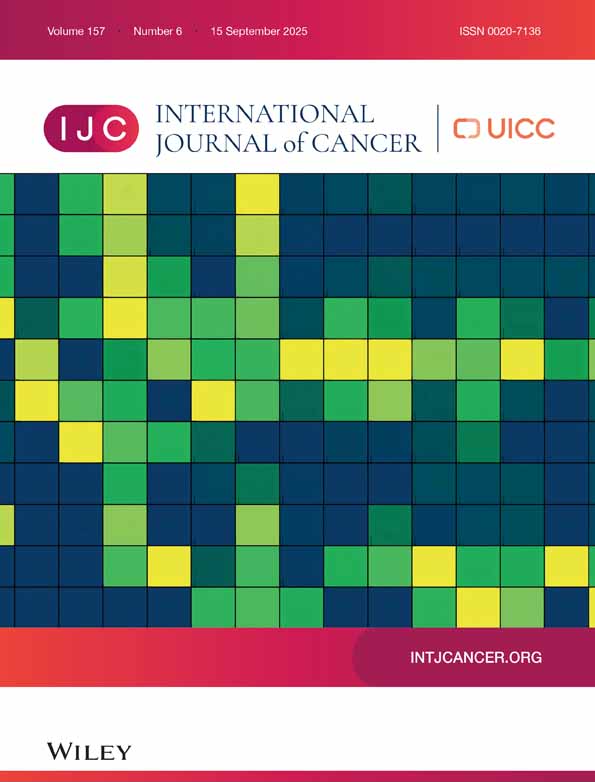Production and characterization of monoclonal antibodies against human neuroblastoma
Abstract
MAb were derived from mice immunized with cells of the human neuroblastoma line IMR-32. Five hybridomas were selected according to their selective binding to human cell lines, tumors and normal tissues. One of them, CE7, reacted with all sympatho-adreno-medullary cells (neuroblastoma, ganglioneuroblastoma, ganglioneuroma, pheochromocytoma, adrenal medulla, sympathetic ganglion cells). Weak cross-reactivities were observed with melanocytes and with some human melanoma and glioma cell lines. The antigen recognized by CE7 was markedly expressed on neuroblastoma tumors of all histological grades, independently of the adrenergic or cholinergic nature of these cells. MAb derived from clones AD2, BCI, BC4 and CB10 bound variably to some, but not to all, neuroblastoma cells. By using these MAb, 3 phenotypes of neuroblastoma lines could be distinguished. The binding profiles of these types, however, showed no correlation with origin of the cell lines or stage of the disease.




